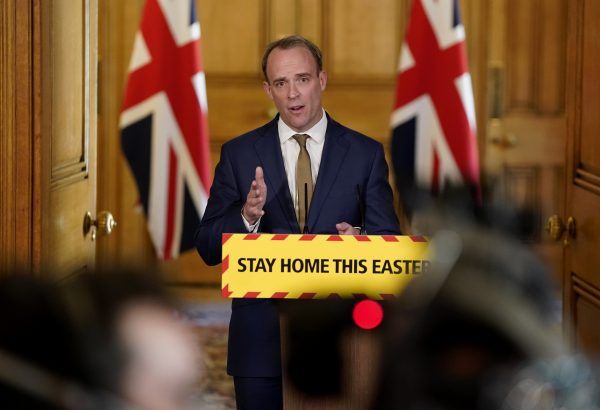Worse still, COVID-19 brings additional complications to UK relationships in Asia.
Because of the Brexit transition period in which the United Kingdom and European Union plan to negotiate their future relationship, little between them will change before at least January 2021. This is when comprehensive frameworks for trade, security, business, travel, and scientific collaboration, among many others, are scheduled to be agreed. Doubts already circulated that this could be achieved in time, but the COVID-19 pandemic has amplified calls for the transition period to be extended.
In the first instance, the ongoing pandemic makes it more likely that the UK’s new relationship with Europe will remain undetermined for longer. This is important because the United Kingdom’s Asian partners want clarity on that relationship. The extent to which arrangements will diverge from EU laws and regulatory standards, for example, is key to the long-term planning of future trading relationships.
The Chairman of the Japan Business Federation has confirmed that trade talks with the United Kingdom ‘depend on how negotiations with the European Union are settled’. The Chinese government is similarly adopting a ‘wait and see approach’ before committing to any process of changing their trading relationship.
More drawn out UK–EU negotiations would be frustrating for the United Kingdom’s Asian partners and a problem for the UK government, whose 2019 election victory rested on the promise to ‘Get Brexit Done’. A prolonged absence of new trade deals or even serious negotiations with China, India, Japan and Australia — partners that UK Prime Minster Boris Johnson told voters were ‘queuing up’ to talk — may initially be blamed on COVID-19. But before long they would become a source of domestic discontent.
Second, a priority for the post-Brexit United Kingdom is to become a knowable international entity. If it is no longer a colonial power, a great power or even a European power (at least one with significant influence in Europe), then what is it? In Asia as much as anywhere, it has the reputation of being willing to uphold international rules and norms. However, the international landscape is evolving and COVID-19 is intensifying questions about future global leadership and where rules of international engagement will be written.
China’s government — which is transitioning from international rule-taker to rule-maker — attracted criticism for hindering early efforts to contain COVID-19, including censoring medical professionals. COVID-19 is harming Beijing’s reputation as a responsible global leader. Even efforts to support Europe during the crisis have backfired. This could make attempts by the United Kingdom to pursue post-Brexit trade deals with China more problematic and controversial than before, internationally and domestically. This is especially true if such deals come with increased involvement in areas of UK infrastructure or the economy which recently proved contentious.
The so-called ‘Golden Era’ of UK–China bilateral relations under former UK prime minister David Cameron achieved little. Spats over freedom of navigation exercises in the South China Sea and the future of Hong Kong further exposed its shallow foundations. After the COVID-19 pandemic, London will assess the relationship more soberly. Indeed, hostility towards China’s government is already emerging from prominent UK politicians, with the Foreign Secretary arguing that it will no longer be ‘business as usual’ in the relationship. The British national intelligence services also now seem to favour a tougher approach.
The United Kingdom’s international presence is traditionally tied to US interests. Broadly speaking, US–UK ties are strong. But in Asia, by joining the Beijing-led Asian Infrastructure Investment Bank the United Kingdom experienced a diplomatic fallout with the United States. Washington also criticised UK accommodation of Huawei, with one Senator arguing that the so-called special US–UK relationship is now ‘less special’. Still, US President Donald Trump has been bullish about post-Brexit trade, though also familiarly capricious by appearing to change his mind.
If the Democratic Party’s nominee, Joe Biden, triumphs in the November US presidential elections, his assertions that US interests in the United Kingdom are ‘diminished’ because of Brexit would gain considerable weight. US Speaker of the House Nancy Pelosi’s warnings that a UK trade deal may not pass Congress also forebode difficult negotiations. Regardless, COVID-19 has already brought preliminary trade talks to a halt.
Outside the European Union, the United Kingdom will navigate alone increasingly choppy international waters, especially those between the United States and China. Indeed, tensions have risen between Washington and Beijing during the COVID-19 crisis as government officials in both countries seek to deflect suspicion and push blame onto one another.
Ultimately, the COVID-19 pandemic is compounding uncertainty about the United Kingdom’s post-Brexit future and its ability to realise visions of Global Britain, not least in Asia. Potential delays to UK–EU negotiations, domestic pressure for regional trade deals, potential controversies around deals with Beijing and newly intensified scrutiny of US–China global leadership all present serious challenges. None of these are entirely new but COVID-19 has — unfortunately for the United Kingdom — exacerbated them all.
Oliver Turner is a lecturer in International Relations at the University of Edinburgh.
This article is part of an EAF special feature series on the novel coronavirus crisis and its impact.

